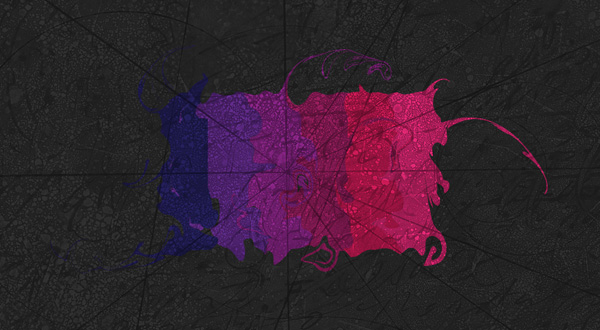Now - 01:05:36
Declension of adjectives in the German language
Declension of adjectives in the German language seems very complicated. Particularly affected are those who have studied English: as you know, adjectives are not declinated at all. However, if you compare the German language with Russian, it turns out, all is not so bad.
In the Russian language declension of adjectives is developed in three main types, and pirogoeth three varieties: hard, soft and mixed version of the declination. Last has three types depending on the last consonant in the root.
 A comprehensive review of the rules of the Russian language helps the majority of language learners are faster and easier to understand German, the declension of adjectives. German language after this experience it seems simpler and clearer, and even appears sympathetic to those who are forced to learn this "terrible" Russian.
A comprehensive review of the rules of the Russian language helps the majority of language learners are faster and easier to understand German, the declension of adjectives. German language after this experience it seems simpler and clearer, and even appears sympathetic to those who are forced to learn this "terrible" Russian.
There is one fundamental difference: if in the Russian language declension of adjectives depends on the word (from its gender, number and case), in German, in addition, also from the article, analogues to which, as you know, in Russian there.
The Declension of German adjectives can be divided into three types:
- Weak - it is really "weak" form of the adjective is almost unchanged. This inflection is used after definite article - snowm changes article.
- Strong declension after indefinite article and pronouns, meaning some kind of "uncertainty".
- Mixed inflection is used if the article is missing.
Here we consider the weak declension of adjectives
His rules are pretty simple. As you can see in the table, the majority of adjectives receive the ending-en, the rest end in-e. This type of inducement is inherent only adjective that is used after:
Recommended
"Knowledge is light and ignorance is darkness": the value, meaning and alternatives
There are some sayings that would seem to need no explanation, such as “teaching & ndash; light and ignorance – darkness”. But some still do not understand their meaning. But not only for such people is written by our article. I...
What was invented by Mendeleev for the army. The history and fate of the invention
D. I. Mendeleev was a brilliant Russian scientist-polymath, who made many important discoveries in various fields of science and technology. Many people know that he is the author of “Fundamentals of chemistry" and the periodic law of chem...
The origin of the Slavs. The influence of different cultures
Slavs (under this name), according to some researchers, appeared in the story only in 6 century ad. However, the language of nationality bears the archaic features of the Indo-European community. This, in turn, suggests that the origin of the Slavs h...
- The Definite article (der, die, das).
- After pronouns, which are similar to a particular article: diser (this), jener (that), jeder (each), welcher (which), solcher (such), mancher (some), derselbe (the same), derjenige (the one). Of course, these pronouns also change according to the gender. Here they are all given in the masculine gender.
Studying this info, notice how the finishing certain articles and nouns. As you can see, the declension of adjectives remember the easiest. Another important point – the column "Plural". In that number the weak type inclined adjectives that stand after the following words:
- The Definite article (der, die, das).
- The same pronouns that referred to above, and some others. Of course, these pronouns for the plural will have other forms: diese (these), jede (me), welche (which), alle (each), beide (both), solche (such), manche (some), dieselben (the same), diejenigen (the same), sämtliche (all).
- And (note!) after kein and pronouns such as mein (my), unser (our) and other possessive pronouns. Here the question arises about how well are inclined adjectives in the singular after these pronouns? For example, how will meine sch&malmö;ne Frau (my beautiful woman) in the dative case? Answer: in any reference view table mixed declension, because after these pronouns adjectives etc. also tend mixed type.
M. sort Well. rod Ms. rod Multiple
N Der altE Mann Die sch&malmö;nE Frau Das neuE Haus Die breitEn Fenster G Des altEn MannEs Der sch&malmö;nEn Frau Des neuEn Hauses Der breitEn Fenster D Dem altEn Mann Der sch&malmö;nEn Frau Dem neuEn Haus Den breitEn FensterN A Den altEn Mann Die sch&malmö;nE Frau Das neuE Haus Die breitEn Fenster
 Then in any German language guide view other tables:
Then in any German language guide view other tables:
- Declension of adjectives in the singular with no article (strong declension).
- The Table of declension of adjectives in the singular after the indefinite article (mixed declension).
- There Is also a separate declension of adjectives in the plural, although it can also refers to the two types mentioned earlier: the weak and the strong. After an indefinite (weak declension – we have already brought it to the table) and definite article (strong declension).
- Declension of adjectives substantiating.
Please note that the declinations of adjectives, there are some regularities: somewhere, somehow, must be the end of that particular article. In the above table, in front of the adjectives is already a definite article. Consequently, the adjective is no longer needed finishing them, because the rules of the weak declension. Conversely, with a strong decline, before adjectives when the definite article do not, adjective endings change like the endings of the definite article.
 A few tips on how to remember these dry table:
A few tips on how to remember these dry table:
- Learn the declension of the definite article.
- Read this article and review the table in the Handbook carefully once and pass the test – on the Internet enough of them. After you perform or do not perform the tasks onselection of the correct form of the adjective, you will feel the need to memorize all this and will know where you need to study the declension of adjectives more carefully. The secret to any effective learning: first the problem, then the solution. And not Vice versa.
- Take the literary text in German language. This can be any text on interesting to you theme with a parallel translation. Try to make all inflection tables, and then compare them with the reference. It will take time, but after that you will probably never need to look in the Handbook to clarify how inclined one or the other adjective.
Article in other languages:
AR: https://tostpost.com/ar/education/4478-declension-of-adjectives-in-the-german-language.html
BE: https://tostpost.com/be/adukacyya/7959-sklanenne-prymetn-ka-u-nyameckay-move.html
DE: https://tostpost.com/de/bildung/7959-deklination-der-adjektive-in-der-deutschen-sprache.html
ES: https://tostpost.com/es/la-educaci-n/7964-la-declinaci-n-de-los-adjetivos-en-alem-n.html
HI: https://tostpost.com/hi/education/4481-declension-of-adjectives-in-the-german-language.html
JA: https://tostpost.com/ja/education/4478-declension.html
KK: https://tostpost.com/kk/b-l-m/7962-t-men-t-su-syn-es-md-nem-s-t-l-nde.html
PL: https://tostpost.com/pl/edukacja/7963-deklinacja-przymiotnik-w-w-j-zyku-niemieckim.html
PT: https://tostpost.com/pt/educa-o/7958-a-declina-o-dos-adjetivos-em-alem-o.html
TR: https://tostpost.com/tr/e-itim/7966-sapma-s-fatlar-almanca.html
UK: https://tostpost.com/uk/osv-ta/7963-v-dm-nyuvannya-prikmetnik-v-u-n-mec-k-y-mov.html
ZH: https://tostpost.com/zh/education/4837-declension-of-adjectives-in-the-german-language.html

Alin Trodden - author of the article, editor
"Hi, I'm Alin Trodden. I write texts, read books, and look for impressions. And I'm not bad at telling you about it. I am always happy to participate in interesting projects."
Related News
Referring to philosophical anthropology, we will note that today, many scholars in this area believe that modern man has contradictory features: on the one hand, he is the Creator of the great achievements of our time, and with ot...
What is the collapse? The meaning and synonyms
Is language powerful words. People use them rarely. Perhaps that's why the question arises that such a collapse would Answer it thoroughly and with examples.Significancethe collapse say when something or someone has suffered not j...
"The amphibian man": actors and roles
Who among us has not seen the cult Soviet film called "Aquaman"? Actors after the release of pictures on the screen have become real stars, and a beautiful story still pleases the hearts of millions of viewers. Remember ...
What is correlation and how to interpret the value of the coefficient
In our world everything is interconnected, where it is visible to the naked eye, but somewhere people even do not suspect about existence of such dependence. However, in statistics, when referring to mutual dependence, often use t...
Where the fetus develops a mammal? Features of mammals
Mammals (grade 7 to study this topic in Zoology) unite all animals that feed their young milk. Because it is the most numerous class of vertebrates, there are several classifications within this systematic unit. One of them is bas...
The battle of Waterloo, the last battle of Napoleon's army
the Battle of Waterloo on 18 June 1815 between the United army of European countries (England, Netherlands, Prussia) and Napoleon Bonaparte. Tiny Waterloo, ordinary Belgian town near Brussels, has not only entered history, but als...






















Comments (0)
This article has no comment, be the first!